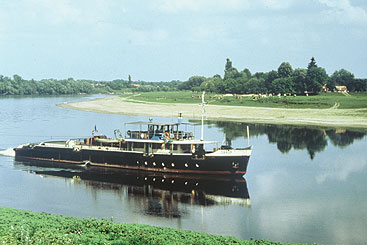Working to meet the requirements of the EU Water Framework Directive
ICPDR Danube Watch: Searching for heavy metals behind the Iron Gates

Working to meet the requirements of the
EU Water Framework Directive
Nearly two years ago the Danube River Protection Convention went into force for Bosnia and Herzegovina. Since then, the country has faced the challenges of integrated river basin management as an equal member in the ICPDR family.

Although the Danube doesn’t flow through Bosnia and Herzegovina, over 75% of the country is part of the Sava River Sub-basin, which is the second largest in the Danube Basin.
Along with the Danube River Protection Convention,
the EU Water Framework Directive (WFD) has become the driving force in water management for Danube countries. While not legally obligated to fulfil WFD requirements, Bosnia and Herzegovina has also committed to following the approach of integrated river
basin management as requested by this directive.
However, the political and governmental structure in Bosnia and Herzegovina remains a challenge. The country’s national water management administration is located in the Ministry of Foreign Trade and Economic Relations (MoFTER) that has international cooperation and coordination between entities as major responsibilities. But the activities regarding implementation of the entity water laws are under the responsibility of the respective entities and the associated institutions, which complicates coordination and slows down implementation.
Targeted support can make a difference. To support Bosnia and Herzegovina, the UNDP-GEF Danube Regional Project (DRP) and the ICPDR has provided a full-time adviser/consultant to the MoFTER since last autumn. The goals of this expert are to facilitate cooperation between the various entities, MoFTER and institutions in the wider Danube Basin, and to encourage knowledge-sharing on integrated water management, supporting all steps towards the implementation of the WFD.
“This initiative clearly shows how effective targeted support can be“, says Reuf Hadzibegic, Assistant Minister of MoFTER, “During the last months Bosnia and Herzegovina has revised its Water Laws and has even developed the National Analysis Report for catchments larger than 4000km.”
The National Analysis Report is a cornerstone for WFD implementation. While the WFD deadline for EU member countries is not legally binding for Bosnia and Herzegovina, the country is committed to actively participate in ICPDR, Sava Commission and other international activities. According to the entity water laws, Bosnia and Herzegovina is obliged to finalise its River Basin Management Plans by 2012, just three years after EU countries.
“We hope that this support enables Bosnia and Herzegovina to progress”, says Philip Weller, Executive Secretary of the ICPDR, “Integrated river basin management can only work if all countries work together and no one is left behind.”
Major investments still needed. Bosnia and Herzegovina still has many problems to solve. About 50% of the 4 million people living in the Sava Basin are linked to public water supply, and less than 45% to the pubic sewage system. Major investments of around of 145 million will be needed in municipal wastewater treatment in the coming years, as only 2.5% of the population is currently linked to proper wastewater treatment facilities.
Extra effort and support must be invested in a monitoring system as requested by the WFD, capacity building and institutional strengthening and integration of the existing IT systems. The coming years will likely see more investment by authorities strategies for public consultation and information exchange and the active involvement of stakeholders in planning procedures.
For more information, please contact Aleksandra Ploco, nfhphe@ovu.arg.onab.ten.hib@rucusa .





